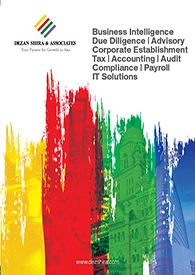ASEAN Market Watch: Indonesia Automotive Market, Malaysia-India Trade, and ASEAN Manufacturing Sector
Indonesia: Largest car market in ASEAN
In 2016, 3.16 million cars were sold in the ASEAN region, according to the latest data from ASEAN Automotive Federation. Around 1.06 million cars, 33 percent of the total car sales, were sold in Indonesia. Thailand follows at second place with 768,788 cars. However, Thailand leads in terms of car production among the ASEAN countries. The country produced 1.94 million vehicles, accounting for almost 50 percent of total ASEAN manufacturing. Indonesia produced 1.17 million cars in 2016.
Industry experts believe Indonesia’s dependency on foreign investment for the automobile sector and the lack of components manufacturing industry will impede its manufacturing capabilities in comparison to Thailand’s current manufacturing capacity. Unlike manufacturing, car sales will continue to see a growth in Indonesia due to a growing economy and increase in purchasing power. Malaysia, Philippines, and Vietnam follow Indonesia and Thailand in terms of car sales.
 RELATED: Pre-Investment and Market Entry Advisory from Dezan Shira & Associates
RELATED: Pre-Investment and Market Entry Advisory from Dezan Shira & Associates
Malaysia-India sign trade deals
Malaysia and India have signed trade deals worth US$ 36 billion (RM 158.68billion), surpassing Malaysia-China US$ 32.67 billion deal signed last year. Majority of the projects will be implemented in Malaysia, worth US$ 32.13 billion (RM 142.26 billion). In total, 31 memoranda of understanding (MoUs) were signed between the two countries. Malaysia also highlighted the need to conclude negotiations on the Regional Comprehensive Economic Partnership (RCEP) agreement, which is a proposed free-trade agreement (FTA) between ASEAN countries and Australia, China, India, Japan, South Korea, and New Zealand.
One of the largest projects is an integrated maritime city on Pulau Carey, a collaboration between MMC Port Holdings, Sime Darby Property and Adani Ports and Special Economic Zone Limited (India) worth US$ 22.78 billion (RM 100.23billion). Other agreements involve the halal industry, highway construction projects, palm oil industry, solar power plants, and higher education facilities. As of December 2016, Malaysia is the 25th largest investor in India, while India is the ninth largest investor in Malaysia. Bilateral trade between India and Malaysia reduced from US$ 16.93 billion in 2014-15 to US$ 12.79 billion last year, in favor of Malaysia.
ASEAN: Manufacturing sector grows in March
The ASEAN manufacturing sector witnessed a growth in March according to the Nikkei ASEAN Manufacturing Purchasing Managers’ Index (PMI). PMI rose from 50.3 in February to 50.9 in March. Except Malaysia, all ASEAN economies witnessed a growth in the manufacturing sector. Vietnam recorded the highest growth among all the economies. Its PMI reached a 22-month high. Vietnam is followed by the Philippines, Myanmar, Indonesia, Singapore, Thailand, and Malaysia respectively. Export sales fell for the sixth consecutive month in spite of the rise of new businesses.
According to the PMI, strong domestic demand led to the growth of the manufacturing industry. The region’s production rose the quickest since July 2014, due to greater demand for ASEAN goods. The PMI index also highlighted the increase in input costs for March. Pre- and post-inventory levels fell due to increased use of finished goods and inputs for production. Manufacturers are still less optimistic about future output for the manufacturing industry due to input costs and a lack of pressure on operating capacity.
|
 Dezan Shira & Associates Brochure
Dezan Shira & Associates Brochure
Dezan Shira & Associates is a pan-Asia, multi-disciplinary professional services firm, providing legal, tax and operational advisory to international corporate investors. Operational throughout China, ASEAN and India, our mission is to guide foreign companies through Asia’s complex regulatory environment and assist them with all aspects of establishing, maintaining and growing their business operations in the region. This brochure provides an overview of the services and expertise Dezan Shira & Associates can provide.
 An Introduction to Doing Business in ASEAN 2017
An Introduction to Doing Business in ASEAN 2017
An Introduction to Doing Business in ASEAN 2017 introduces the fundamentals of investing in the 10-nation ASEAN bloc, concentrating on economics, trade, corporate establishment, and taxation. We also include the latest development news for each country, with the intent to provide an executive assessment of the varying component parts of ASEAN, assessing each member state and providing the most up-to-date economic and demographic data on each.
 Human Resources in ASEAN
Human Resources in ASEAN
In this issue of ASEAN Briefing, we discuss the prevailing structure of ASEAN’s labor markets and outline key considerations regarding wages and compliance at all levels of the value chain. We highlight comparative sentiment on labor markets within the region, showcase differences in cost and compliance between markets, and provide insight on the state of statutory social insurance obligations throughout the bloc.










